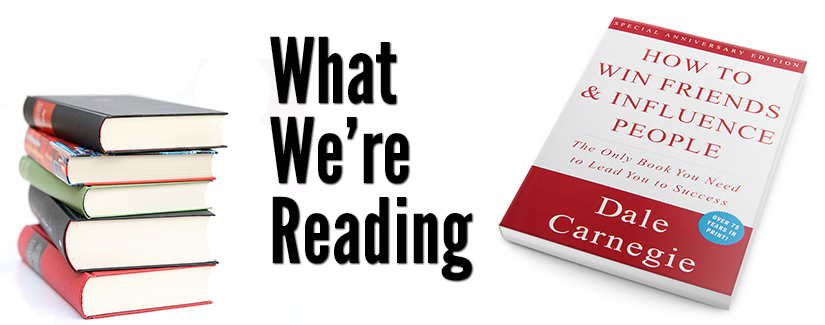
The skills and techniques discussed in How to Win Friends and Influence People are as valuable as they were in 1936, but now you'll see the same ideas bundled into marketing-ready phrases like “how to build your personal brand.”
In other words, Dale Carnegie wrote the book on how to become an influencer - eighty years ago.
As he says in the book’s introduction, dealing with people is the biggest problem most of us face. Whether it’s a client, a new partner, or a spouse, relationships are the bedrock of our lives. In fact, Carnegie offers a few research-backed statistics to prove his point:
- 15% of your financial success is due to your technical knowledge
- 85% is due to your leadership and human engineering skills
We’re guessing that if you asked your clients why they chose to work with you, it’s because you’re friendly, approachable, helpful, and communicative – which would prove Carnegie’s point.
Let’s say you want to expand your business in 2016 and 2017. Whether this means prospecting and earning more clients’ business or finding partners to foster growth on the macro scale, How to Win Friends and Influence People can help.
Let’s find out how.
How to Make People Like You
“You can make more friends in two months by becoming interested in other people than you can in two years by trying to get other people interested in you.”
This is an important part of building your personal brand. You want people to like you because (a) it creates a stronger client/advisor bond, and (b) if people like you, they're more likely to listen to you when it comes time to talk about difficult or confusing topics like life insurance. In fact, you may have already have mastered the first step – being genuinely interested in other people.
For some, being interested in others comes naturally. If it doesn’t, now's the time to start finding ways to connect with them and make them feel valued. Carnegie's suggestions include remembering birthdays, ensuring you remember a new acquaintance’s name, or changing the way you answer the phone to sound excited to receive the call. Additional suggestions include training yourself to smile more often and taking the initiative to strike up conversations.
If these steps don't come naturally to you, Carnegie’s advice is to fake it until you make it. If you act like you’re happy, eventually you’ll actually be happy. That’s a huge step in the right direction toward making people like you.
How to Influence People
“You can't win an argument. You can't because if you lose it, you lose it; and if you win it, you lose it.”
This section of the book is super-relevant from a sales perspective. Carnegie's tips boil down to respecting other people’s opinions. He's asking you to share knowledge without making others feel small, and find common ground with those who disagree with you.
One way to do this, he says, is to avoid arguments. The purpose of an argument is usually to prove yourself right and someone else wrong. But before you jump into a fray, ask yourself: does it really gain you anything by embarrassing the other person? Or making them uncomfortable? These aren't the ways to earn someone's respect, he says.
Of course, this is a general piece of advice. In our industry, we’re dealing with money and financial strategy. Sometimes, a client may believe something that is clearly incorrect. What do you do then? If this happens, Carnegie advises you to listen first. Ask questions to find out why they believe what they do. Find at least one point where you agree, and refer to common ground before you move on to areas where you disagree. It’s all about showing respect and making the other person feel comfortable with you.
But let’s say you’re at a conference and someone attributes a quote incorrectly. Or they share a misleading statistic. Or they come to a conclusion that's just plain wrong. Do you gain anything from pointing it out? If an honest discussion is on the agenda, that's one thing. But if you're starting an argument to prove you're right, think twice, Carnegie says.
Do You Use Carnegie's Advice?
“Everybody in the world is seeking happiness—and there is one sure way to find it. That is by controlling your thoughts. Happiness doesn't depend on outward conditions. It depends on inner conditions.”
If you haven’t guessed by now, most of the advice in How to Win Friends and Influence People is good old-fashioned politeness (not to mention common sense). But in this era of spiteful Internet comments and the rush to be seen as an authority, some people forgo these social niceties. That doesn’t mean you have to. Carnegie suggests we all remember to be humble, listen more than we speak, and treat others with respect. If we do, we'll become someone others like and admire.
But.
You knew there was a "but," right?
Actually, it's more of an open-ended question. The techniques of the Challenger Sale, one of our favorite sales methods, takes a different approach. Being a “Challenger” is about displaying your knowledge and using that knowledge to make a prospect uncomfortable – and then showing them how your solution solves their problem.
This isn’t exactly a Carnegie-approved method. But it works, doesn’t it?
Are there any of Carnegie’s strategies you’ve used...or do you prefer a Challenger approach? Tell us in the comments!

